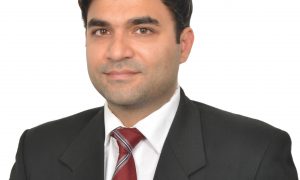This interview has been published by Anshi Mudgal and The SuperLawyer Team

Coming from a different academic background, what sparked your decision to pursue law as a career? How did your law school years shape your perspective on the legal profession?
To be honest, I never intended to pursue a career in law. I come from a completely non-legal background. I’m a first-generation lawyer with no one in my family, even distantly, associated with the legal profession. When I moved from Assam to Delhi, it was with the goal of preparing for the UPSC examinations. However, my father, who always believed in the value of having a professional degree, strongly encouraged me to pursue law first. At his insistence, I enrolled in the Faculty of Law at Delhi University, while simultaneously preparing for UPSC.
In the beginning, I had little understanding of how the legal system functioned or the vital role it played in shaping our democracy. That changed during my time in law school. As I started reading landmark judgments in our course materials, I began to understand the transformative role the judiciary had played in protecting rights, interpreting the Constitution, and ensuring accountability. For the first time, I saw how the law could be used to empower the weak and uphold justice against power.
This intellectual shift deepened during my internships when I visited the Supreme Court of India and the High Court of Delhi. Watching senior advocates argue passionately on behalf of their clients was a defining moment for me. It became clear to me that as a lawyer, I could make a meaningful impact.
That realisation shaped the course of my legal education. I decided early on to focus on litigation rather than corporate or in-house roles. Thus, throughout law school, I interned exclusively with practicing advocates and senior counsels to better understand the courtroom and the craft of advocacy. That foundation continues to guide my journey in the legal profession today.
After years of working with several reputed law firms, what inspired you to set up your independent practice? How has the transition been, and in what ways have your prior experiences enriched your current approach to litigation?
When I started out as a junior counsel, my senior, who primarily practiced before the High Court, assigned me matters before trial courts in Delhi. This early exposure to trial work which included arguing applications, conducting cross-examinations, and making final submissions proved invaluable. It allowed me to develop a strong foundation in procedural law. I learned how to adapt during cross-examinations, think on my feet, and refine strategy in real time. More importantly, it taught me how a case is built from the ground up, starting from when a client walks in with a set of facts and documents, to seeing it through to its conclusion.
My trial court experience shaped the way I approach litigation, even later during my years at law firms. At the firms, I worked on complex, high-value disputes and was mentored by seasoned partners. I developed a better understanding of client management, commercial awareness, and the importance of structured preparation. The exposure to varied matters and corporate clients broadened my perspective and added discipline to my practice.
As for my decision to start an independent practice, it felt like a natural progression. Most litigators, at some stage, aspire to have their own practice. Moreover, clearing the Advocate-on-Record examination served as an additional catalyst as it strengthened my resolve to build a practice in the Supreme Court alongside my existing work in other forums. The transition has been both challenging and fulfilling since it demands not just legal skill, but consistency, judgment, and the ability to run both the legal and operational aspects of practice. My prior experience has helped me maintain clarity, structure, and strategic thinking, qualities that I continue to rely on in my current practice.
In the early stages of your career, you worked with various advocates and law firms. Could you share a few pivotal experiences that significantly influenced your legal thinking and helped expand your expertise across diverse domains?
A range of matters across forums has shaped my legal thinking and approach to litigation. Working on construction and infrastructure arbitrations gave me hands-on experience in drafting pleadings, framing cross-examination strategies, and arguing before arbitral tribunals. These technically complex and document-heavy disputes helped me develop a structured, detail-oriented approach to fact-intensive cases.
In arbitration-related litigation, I have drafted and argued petitions under Sections 9, 11, and 34 of the Arbitration and Conciliation Act, dealing with issues of procedural fairness, jurisdiction, and the scope of judicial review. I have also handled cross-border disputes involving foreign parties in infrastructure and shipping disputes, which required navigating enforcement, foreign law, and complex contractual structures.
My broader civil and commercial work has included recovery suits, partition and specific performance claims, landlord–tenant disputes, defamation, banking, and insurance matters. All these experiences have enabled me to develop a forum-conscious, legally rigorous, and strategically adaptive litigation practice.
You’ve represented both Indian and foreign clients in civil matters and commercial matters ranging from salary disputes to high-value recoveries. How do you bridge the differences between the international legal system and the Indian legal system while navigating such cases?
In cross-border disputes involving foreign parties, it is important to ensure that the legal strategy is not only consistent with Indian procedural norms but also communicated in a manner that is clear, accessible, and contextually appropriate for clients unfamiliar with the Indian legal system. My central consideration in such matters is to meet domestic procedural requirements while also reflecting upon the broader commercial and contractual context from which the dispute arises. Foreign clients often approach Indian proceedings with assumptions shaped by how similar disputes are handled in their own jurisdictions, whether in terms of timelines, document disclosure, or court processes. It therefore becomes essential to bridge that gap by managing expectations and crafting a legal strategy that acknowledges those assumptions, while remaining firmly within the framework of Indian law.
You’ve been part of both ad-hoc as well as institutional arbitrations. What do you believe are the main reasons institutional arbitration has not flourished in India as it has in other jurisdictions?
Institutional arbitration in India hasn’t taken off as it has elsewhere largely because the ad hoc proceedings remain the default in commercial contracts. Many parties simply insert a bespoke arbitration clause, viewing that as more directly under their control and cost-effective. At the same time, there is limited awareness of institutional rules and best practices among contract-drafting teams. As a result, institutions seldom feature in the underlying agreements. Moreover, institutional arbitration has struggled to gain traction largely due to preferences for ad hoc proceedings, concerns around cost, and a historical lack of trust in domestic arbitral institutions. Many parties, particularly public sector bodies have opted for ad hoc mechanisms, believing them to be more flexible and cost-effective.
However, recognising these systemic hurdles, the Government in the Draft Arbitration and Conciliation (Amendment) Bill, 2024 has made an effort to strengthen institutional arbitration. The bill proposes clearer recognition of arbitral institutions, limits judicial interference during the pendency of proceedings, introduces enforceable emergency arbitrator provisions, and empowers institutions to manage certain procedural aspects that were previously routed through courts. These reforms are a step toward creating a more credible and self-sufficient arbitral ecosystem in India, but institutional arbitration will only become the norm when users, both private and public, begin to see these changes reflected in actual practice.
With a practice spanning commercial litigation, matrimonial cases, and consumer disputes, what has been one of the most challenging or personally memorable cases you’ve worked on, and what made it stand out?
For me, every case is equally challenging and personally memorable. Once you put your name to a matter, you inevitably invest a part of your professional identity in its outcome. Since I have to mention one, I would like to speak about the first case I was independently engaged in during the very first year of my practice. The client had filed a suit for recovery of damages against a courier company for the loss of machinery in transit. The advocate representing the client had, for some reasons, missed multiple hearings and by the time I was engaged, the court had already closed the plaintiff’s right to cross-examine the defendant’s witness and listed the matter for final arguments.
At first, I considered filing an application to reopen the defendant’s evidence and recall the witness. However, upon examining the record, I figured out that nothing much was going to come out of the cross examination as the Defendant in his defence primarily relied upon a term at the back of the invoice which limited his liability to Rs. 100/-. Hence, I decided to proceed with final arguments as I had a strong case legally. The court ultimately decreed the matter in favour of my client, despite the defendant’s evidence remaining unrebutted.
You’ve worked with clients across sectors like infrastructure, pharmaceuticals, and technology. How do you keep pace with the constantly evolving regulatory landscape, and what tools or resources would you recommend to young legal professionals to stay informed and ahead of the curve?
I primarily rely on Lexology for its daily sector-specific and jurisdiction-specific newsletters, while Mondaq offers in-depth insights into emerging regulatory trends across industries. For real-time updates on Indian law, I follow Bar & Bench and LiveLaw, which provide reliable coverage of all legal developments in the country. Young legal professionals may subscribe to these resources which are largely free and develop a routine of reading beyond their immediate areas of work. Over time, this habit not only sharpens legal awareness but also builds the contextual understanding needed to advise effectively in a fast-evolving legal landscape.
Clearing the Advocate-on-Record (AOR) examination is a major milestone. What aspects of the AOR exam did you find most challenging, and what strategies did you use to prepare effectively for this prestigious qualification? Additionally, how has the AOR designation influenced your professional practice?
The most challenging aspect of the AOR exam for me was managing the subjectivity and time pressure, particularly because I opted for the handwritten mode of the exam. Having worked on the laptops for so many years, I had lost the habit of writing for extended periods, and improving my writing speed became a real challenge. In terms of strategy, I began with the papers on leading cases and professional ethics, as these required substantive reading. I made notes, knowing I might not have time closer to the exam to revisit lengthy judgments and texts. This also helped me get back into the habit of writing regularly. For the papers on practice and procedure and drafting, prior experience in the Supreme Court was definitely helpful, as I was already familiar with the format of petitions and procedural nuances. I also relied on the Supreme Court Rules, 2013 and the Supreme Court handbook on practice and procedure for the preparation. Citing relevant case law in the practice and procedure paper also added value. For the drafting paper, I focused on solving previous years’ questions within the stipulated timelines to build both accuracy and speed.
The AOR designation has long been regarded as a mark of credibility and respect within the legal community, and earning it has been both empowering and confidence-building. Since becoming an AOR, I’ve seen a shift not only in the nature of work I receive but also in who approaches me since my clients now include not just litigants, but also lawyers who are not AORs and seek assistance with filing and pursuing matters before the Supreme Court. The designation has added a level of professional trust that has meaningfully expanded both the scope and responsibility of my practice.
Finally, what guidance would you offer to law students and aspiring litigators hoping to chart a path like yours? Is there a particular mindset, skill set, or approach you believe is essential in today’s dynamic legal environment?
I find that today’s law students are far more informed and situationally aware than I was during my time in law school, which is truly encouraging. However, I also see many of them constantly under pressure, whether it’s the next moot, internship, or securing a PPO. While these things are important, I would urge them not to lose sight of the bigger picture. It’s equally important to enjoy the process, make memories, and meaningfully engage with the subjects taught in law school.
For aspiring litigators, I would add that law is a demanding field. If you don’t allow law to become a part of your life, you’ll always struggle to find the so-called work-life balance. Even the most celebrated senior advocates who have reached the very heights of success continue to work as hard, if not harder, than those just starting out. That says something about what this profession demands. Those who approach it purely as a source of income often find it difficult to sustain in the long run. I also believe that spending time in trial courts is invaluable as there is no better way to develop procedural clarity, practical judgment, and courtroom instinct. That is where a litigator truly understands how a case unfolds. Lastly, building relationships and nurturing a professional network is just as important since law is a people-centric profession, and the connections you make often shape the opportunities that come your way.
Get in touch with Deepanjan Dutta –

























